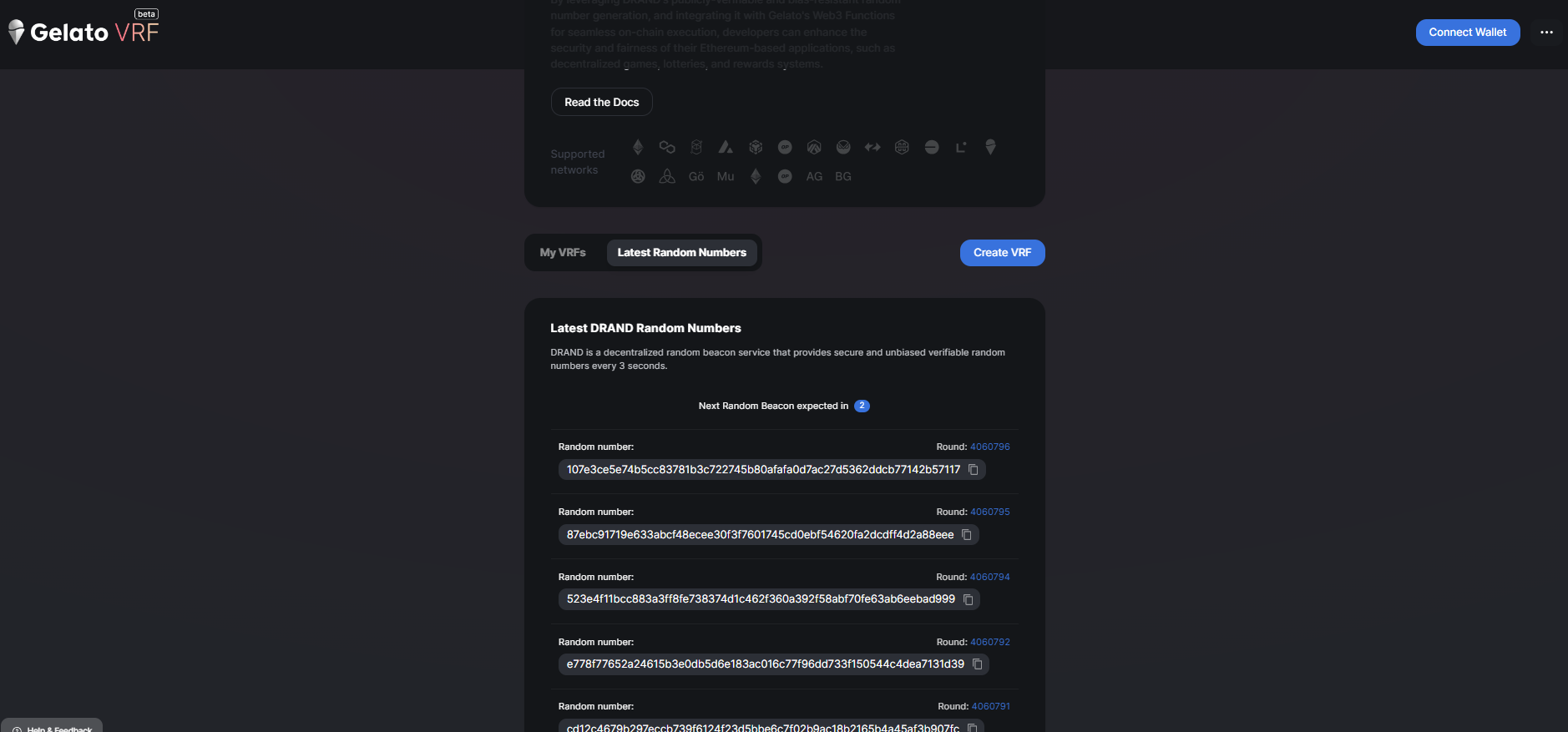Gelato VRF
Gelato VRF and Trustworthy Randomness
Applications of Gelato VRF


// SPDX-License-Identifier: MIT
pragma solidity 0.8.18;
import {GelatoVRFConsumerBase} from "./GelatoVRFConsumerBase.sol";
contract YourContract is GelatoVRFConsumerBase {
// Your contract's code
} function requestRandomness(bytes memory data) external {
require(msg.sender == ...);
uint64 requestId = _requestRandomness(data);
} function _fulfillRandomness(
bytes32 randomness,
uint64 requestId,
bytes memory data,
) internal override {
}
}// SPDX-License-Identifier: MIT
pragma solidity 0.8.18;
import {GelatoVRFConsumerBase} from "./GelatoVRFConsumerBase.sol";
contract YourContract is GelatoVRFConsumerBase {
constructor(address operator)
GelatoVRFConsumerBase(operator) {
// Additional initializations
}
// The rest of your contract code
}